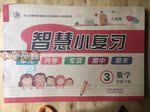题目内容
“Mum, what does it mean when someone tells you that they have a skeleton(骨骼)in the closet(衣橱)?” Jessica asked. “A skeleton in the closet?” her mother paused thoughtfully. “Well, it’s something that you would rather not have anyone else know about. For example, if in the past, someone in Dad’s family had been arrested for stealing a horse, it would be ‘a skeleton in his family’s closet’. He really wouldn’t want any neighbor to know about it.”
“Why pick on my family?” Jessica’s father said with anger. “Your family history isn’t so good, you know. Wasn’t your great-great-grandfather a prisoner who was transported to Australia for his crimes?” “Yes, but people these days say that you are not a real Australian unless your ancestors arrived as prisoners.” “Gosh, sorry I asked. I think I understand now,” Jessica cut in before things grew worse.
After dinner, the house was very quiet. Jessica’s parents were still quite angry with each other. Her mother was ironing clothes and every now and then she glared at her husband, who hid behind his newspaper pretending to read. When she finished, she gathered the freshly pressed clothes in her arms and walked to Jessica’s closet. Just as she opened the door and reached in to hang a skirt, a bony arm stuck out from the dark depths and a bundle of white bones fell to the floor. Jessica’s mother sank in a faint(晕倒), waking only when Jessica put a cold, wet cloth on her forehead. She looked up to see the worried faces of her husband and daughter.
“What happened? Where am I?” she asked. “You just destroyed the school’s skeleton, Mum,” explained Jessica. “I brought it home to help me with my health project. I meant to tell you, but it seemed that as soon as I mentioned skeletons and closets, it caused a problem between you and Dad.” Jessica looked in amazement as her parents began to laugh madly. “They’re both crazy,” she thought.
1.According to Jessica’s mother, “a skeleton in the closet” means ______.
A. a family honor B. a family secret
C. a family story D. a family treasure
2.What can we learn about some Australians’ ancestors form Paragraph 2?
A. They were brought to Australia as prisoners.
B. They were the earliest people living in Australia.
C. They were involved in some crimes in Australia.
D. They were not regarded as criminals in their days.
3.Why did Jessica bring a skeleton home?
A. She was curious about it. B. She planned to keep it for fun.
C. She needed it for her school task. D. She intended to scare her parents.
4. Jessica’s parents laughed madly at the end of the story probably because ______.
A. they were crazy
B. they were over excited
C. they realized their misunderstanding
D. they both thought they had won the quarrel
1.B
2.A
3.C
4.C
【解析】略

 智慧小复习系列答案
智慧小复习系列答案I have been consistently opposed to feeding a baby regularly. As a doctor, mother and scientist in child development I believe there is nothing to recommend it, from the baby’s point of view.
Mothers, doctors and nurse alike have no idea of where a baby’s blood sugar level lies. All we know is that a low level is harmful to brain development and makes a baby easily annoyed. In this state, the baby is difficult to calm down and sleep is impossible. The baby asks for attention by crying and searching for food with its mouth.
It is not just unkind but also dangerous to say a four-hourly feeding schedule will make a baby satisfied. The first of the experts to advocate a strict clock-watching schedule was Dr Frederic Truby King who was against feeding in the night. I’ve never heard anything so ridiculous. Baby feeding shouldn’t follow a timetable set by the mum. What is important is feeding a baby in the best way, though it may cause some inconvenience in the first few weeks.
Well, at last we have copper-bottomed research that supports demand feeding and points out the weaknesses of strictly timed feeding. The research finds out that babies who are fed on demand do better at school at age 5, 7, 11 and 14, than babies fed according to the clock. By the age of 8, their IQ (智商)scores are four to five percent higher than babies fed by a rigid timetable. This research comes from Oxford and Essex University using a sample (样本)of 10,419 children born in the early 1990s,taking account of parental education, family income, a child’s sex and age, the mother’s health and feeling style. These results don’t surprise me. Feeling according to schedule runs the risk of harming the rapidly growing brain by taking no account of sinking blood sugar levels.
I hope this research will put an end to advocating strictly timed baby feeling practices.
【小题1】According to Paragraph 2, one reason why a baby cries is that it feels______.
| A.sick | B.upset | C.sleepy | D.hungry |
| A.He is strict |
| B.He is unkind |
| C.He has the wrong idea |
| D.He sets a timetable for mothers |
| A.basic | B.reliable | C.surprising | D.interesting |
| A.The baby will sleep well |
| B.The baby will have its brain harmed |
| C.The baby will have a low blood sugar level |
| D.The baby will grow to be wiser by the age of 8 |
| A.in the night |
| B.every four hours |
| C.whenever it wants food |
| D.according to its blood sugar level |